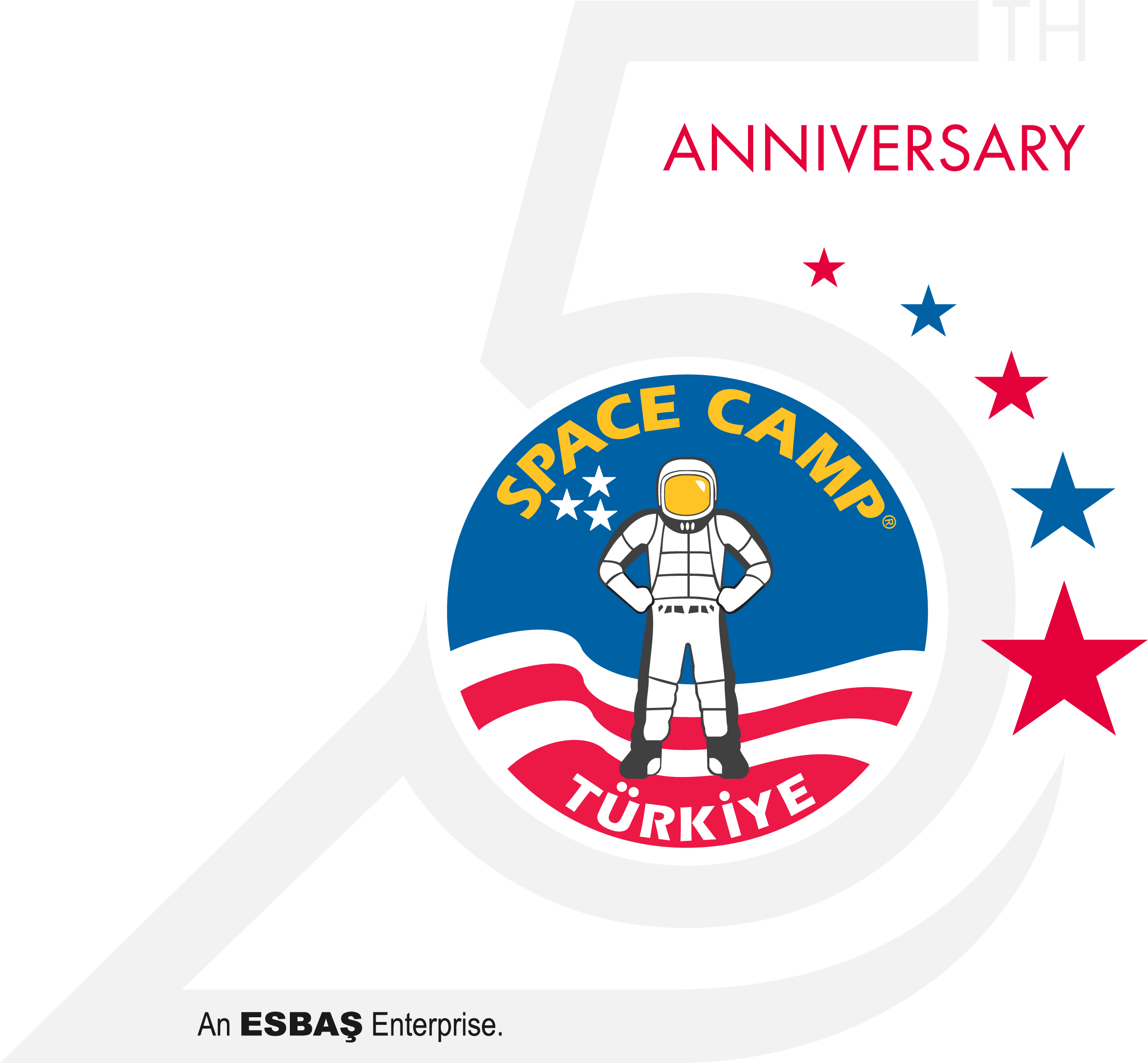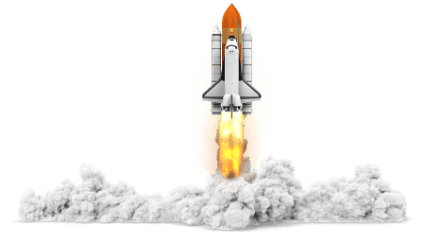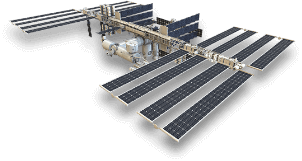The 50th anniversary of the first humans landing on the Moon as part of NASA's Apollo 11 lunar mission was celebrated at Space Camp Türkiye with various activities during a special week titled “Apollo Week”.
The 50th anniversary of the first humans landing on the Moon as part of NASA's Apollo 11 lunar mission was celebrated at Space Camp Türkiye with various activities during a special week titled “Apollo Week”.
170 students and teachers from a total of 6 countries, including Bulgaria, Romania and Greece, attended this special concept week, which was held on July 14-20. Throughout the program, participants had the chance to learn the mysteries of the Moon, which is the only celestial body on which human beings have set foot in the solar system, through hands-on training.
During the program, the participants learned about the positions of the Sun, Moon and Earth, the Eclipse and other scientific facts about the Moon with the Moon Phases calendar that they have designed while also attending other activities of Space Camp Türkiye. During the Moon Observation with a telescope session, students who closely explored the surface characteristics of the Moon and the landing areas of Apollo astronauts with a 30 cm telescope also designed a Moon Lander using scientific concepts such as kinetic and potential energy transformations, gravity, air resistance, and aerodynamics.

Moon Phase Calendar Workshop
In this activity, which was specially prepared for the Apollo Week, the participants made their own lunar phase calendars which shows the moon phase for each day of the year. Students who also used these calendars during the Moon observation had the chance to study the Moon up to its craters.

Landing on the Moon
During the activity the campers design a Moon Lander. Students tried to ensure that the astronauts inside the Moon Lander, which are released by free fall movements from certain heights, remained within the lander without being affected by the shocks that would occur during the landing. Thus, they learned about scientific terms such as kinetic and potential energy transformations, gravity, force and motion, collision, air resistance, aerodynamics. By using engineering design processes, students had a great time trying to create a system that minimizes the impact of collision during the landing of the Moon Lander.

Survival on the Moon
This activity encouraged the campers to explore new worlds and also learn how to survive in these new environments. The students compared the challenges faced by explorers through the ages, checking for prior knowledge about conditions for survival on the Moon. During the activity, campers took on the roles of astronauts who are part of a crew landing on the Moon in the year 2024. Campers were challenged to rank items for survival in this new world and develop a deeper understanding of space exploration. Campers learned how to rank the materials they have, in order to survive after a problem of the propellant of the Moon Lander.
Space Camp Türkiye, one of the two space camps in the world, aims to provide a holiday experience that is beyond the dreams of the students and continues to do so with its 2019 summer youth camp programs. Among the Galactic Summer Camp programs, which start with the closure of schools and continue with different options and contents for different age groups, the camp that will take place in August 18-24 will be hosting the Future Explorers Summit as part of Space Camp Türkiye’s distance learning programs.
WHAT HAPPENED IN THE APOLLO 11 MISSION?
Apollo 11 was the spaceflight that first landed humans on the Moon. Commander Neil Armstrong and lunar module pilot Buzz Aldrin formed the American crew that landed the Apollo Lunar Module Eagle on July 20, 1969, at 20:17 UTC. Armstrong became the first person to step onto the lunar surface six hours 39 minutes later on July 21 at 02:56 UTC. Command module pilot Michael Collins flew the command module Columbia alone in lunar orbit while they were on the Moon's surface. All three crew members returned to Earth after eight days in space.
INTERNATIONAL SUMMER CAMPS
Discover the thrill of international summer camps with Space Camp Turkey's exclusive programs for kids! At Space Camp Turkey, we offer international summer camps tailored for kids aged 9-16 years old. As a world-renowned leader in space sciences and technology education, we are one of only two centers(*) of our kind. Join us for a summer filled with educational enrichment, thrilling experiences, and endless fun.
If you are an expat living in Turkey or planning a trip and searching for a safe and "exciting international summer camp" for your child, look no further, because Space Camp Turkey is the place to be! Give your child a summer full of cultural exchange and unique hands-on space science experiences with students from around the world at Space Camp Turkey. With over two decades of experience, our programs offer the perfect blend of education and fun for kids. But don't wait too long, as spots are filling up fast! Your child deserves a summer filled with adventure and memories, and Space Camp Turkey is the perfect opportunity for just that.
For detailed information about our 2025 summer camp programs full of hands-on scientific activities and fun, please visit our "2025 International Summer Camp for Teens and Kids! Blast Off to Adventure!" blog.
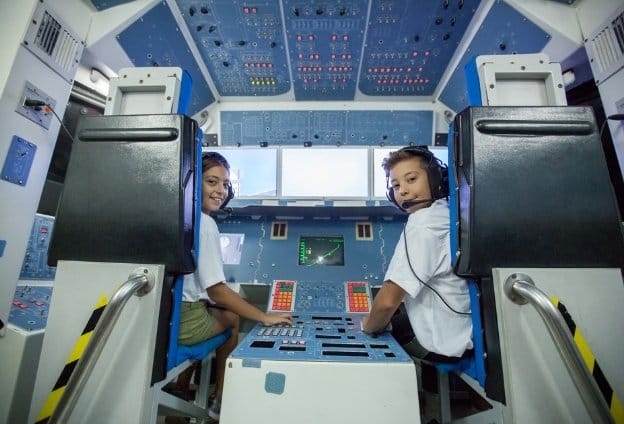
Miranda: Could Uranus’ Icy Moon Harbor Life?
One of the most intriguing moons in the Solar System, Miranda, has recently been the subject of a remarkable discovery. Researchers at the Johns Hopkins Applied Physics Laboratory have found evidence suggesting that a massive ocean may exist beneath the surface of this small, icy moon—potentially as deep as 30 kilometers. If this subsurface ocean still exists and has the right chemical conditions, it could provide a suitable environment for microbial life. Scientists are now emphasizing the importance of planning a new exploration mission to Uranus and its moons.
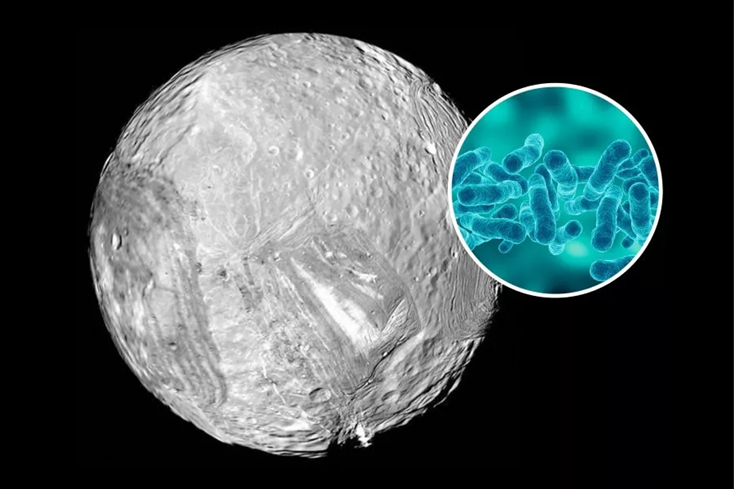
Organic Molecules and Signs of Life on Mars
The Red Planet, Mars, has long been at the center of the search for extraterrestrial life. NASA’s Perseverance and Curiosity rovers continue to investigate traces of past water and organic molecules on its surface. Perseverance’s excavations in Jezero Crater have uncovered organic compounds that might hold clues about microorganisms that once lived on Mars. Since these molecules were found in an ancient lakebed, they suggest that Mars may have had habitable conditions in the past.
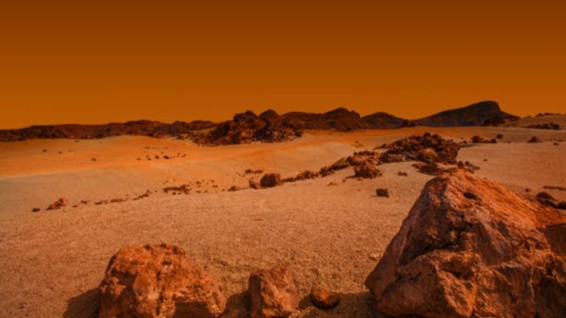
Enceladus: A Key Ingredient for Life Discovered!
Saturn’s ice-covered moon, Enceladus, has been on scientists' radar for years due to its subsurface oceans. However, a recent discovery has made it even more fascinating. Research has revealed that Enceladus' ocean contains abundant phosphorus, a crucial element for DNA and cellular energy production. This finding suggests that Enceladus could offer a suitable environment for microbial life. In light of this data, scientists are planning to send a dedicated spacecraft to explore Enceladus in the future.
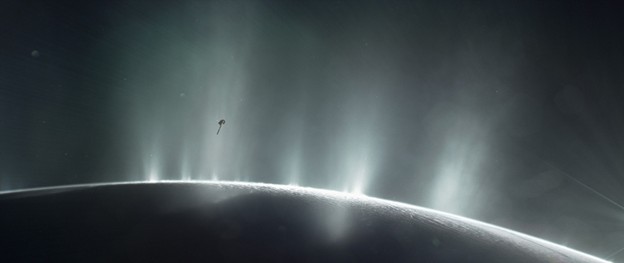
SETI and the Search for Extraterrestrial Intelligence
If we are not alone in the universe, perhaps other civilizations are listening to us as well. That is precisely why the SETI (Search for Extraterrestrial Intelligence) project is scanning deep space for radio signals that might be evidence of intelligent extraterrestrial life. Although some intriguing signals have been detected in recent years, none have been definitively confirmed as coming from an alien civilization. However, scientists remain hopeful and continue listening to the universe with increasingly advanced technology.
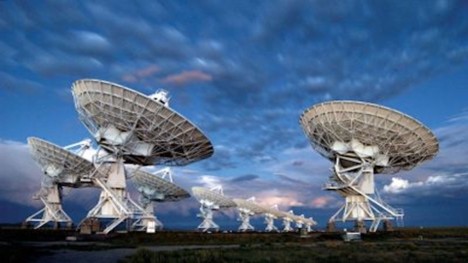
Is Oxygen Production on the Moon Possible?
The Moon is seen as humanity’s next destination in space exploration. However, one of the biggest challenges for long-term human settlements is the lack of life support systems. Chinese scientists have proposed an innovative idea—artificial photosynthesis on the lunar surface to produce oxygen and fuel. This system could be a major step toward sustainable life on the Moon and could pave the way for future lunar bases.
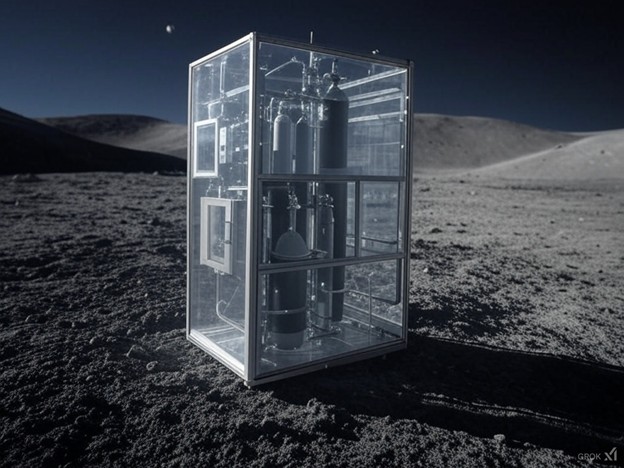
We May Not Be Alone!
All these discoveries suggest that extraterrestrial life may be much closer than we once imagined. Perhaps one day in the future, we will find living organisms somewhere in the Solar System or beyond. Scientists are working tirelessly with ever-advancing technology to answer this question. Who knows—maybe we are not alone… and maybe we are on the brink of discovering the truth!
[description] => Are we alone in the universe? Recent discoveries on Mars, Enceladus, and Miranda suggest that extraterrestrial life may be closer than we think. Explore the latest breakthroughs in space exploration, from subsurface oceans to organic molecules, and learn how scientists are searching for signs of life beyond Earth. [keywords] => extraterrestrial life, search for alien life, space exploration, discoveries, signs of life beyond Earth, NASA Mars mission, organic molecules on Mars, Miranda Uranus moon, Enceladus ocean life, SETI radio signals, habitable moons in the Solar System, oxygen production on the Moon, future space missions, microbial life in space, Uranus and its moons [extra] => [{"key":"","value":""}] [created_date] => 2025-03-13 15:19:20 [updated_date] => 2025-03-13 15:22:14 [lang] => en [active] => 1 [search] => 1 [facebook_piksel] => ) [2] => stdClass Object ( [id] => 951 [parent] => 23 [order] => 4 [lang_id] => c9fafca3212ba45897dd0caaf8f22ce8 [title] => Sustainability and Environmental Protection in Space [subtitle] => 06.07.2024 [header_img] => 0 [list_img] => upload/media/surdurulebilir-cevre1.jpg [summary] => Space exploration is one of humanity's most exciting and significant endeavors. It allows us to discover new horizons, enhance our knowledge of the universe, and advance our technology. However, space exploration must also be sustainable for our planet Earth and future generations. [content] =>Sustainability in space exploration is not just an environmental issue. It is also essential from economic, social, and ethical perspectives. Building a sustainable future in space requires collaboration among all stakeholders and the development of innovative solutions.
Environmental Impacts of Space Exploration
Space exploration can pose various environmental challenges, from rocket fuel emissions to the environmental impacts of launch sites. Focusing on the long-term environmental effects of space debris and activities in space is crucial. However, steps toward sustainability in space also include using innovative materials, cleaning up space debris, and developing farming capabilities in space. These approaches play a significant role in reducing the environmental impacts of space exploration and using space resources more efficiently.
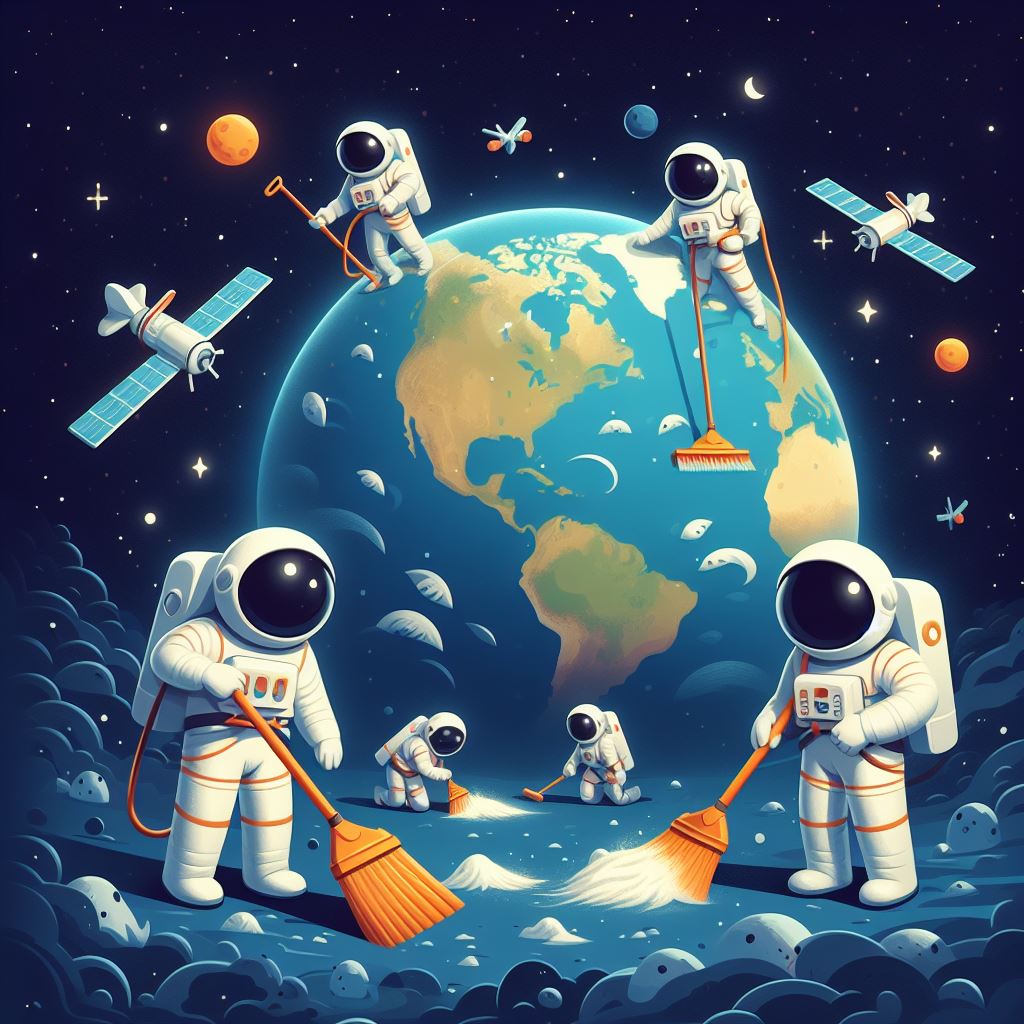
Steps to Sustainable Space Exploration
Waste Reduction: Space debris poses a significant threat to space exploration. Old satellites, rocket parts, and other debris orbit the Earth and risk colliding with space vehicles. To mitigate this risk, it is important to develop methods that produce less waste and retrieve or eliminate objects leaving orbit.
Resource Usage: Space exploration is associated with the use of valuable resources such as water, energy, and raw materials. It is important to use these resources more efficiently in space and reduce the amount of resources transported from Earth.
Preservation of Space Environment: Space exploration can pollute the space environment and harm Earth's ozone layer. To minimize these effects, developing cleaner space vehicles and rocket engines, as well as promoting international cooperation in monitoring and preserving space environment, are important.
Space Ethics: Space exploration raises ethical issues such as the fair use of space resources and prevention of potential conflicts in space. Establishing an international framework on these issues is crucial for ensuring a sustainable future in space.
Space Economy: Space exploration also offers new job opportunities and economic growth potential. Developing and commercializing space technologies and services can make space exploration more sustainable and increase its potential benefits to Earth.
Sustainability in Space and its Relationship with Earth
The relationship between space exploration and the planet Earth is complex and multifaceted. On one hand, space exploration allows us to see Earth from a new perspective and better understand its fragility, thus advancing our sustainability efforts on our planet. On the other hand, space activities can lead to negative impacts threatening sustainability, such as space debris and pollution.
For example, old satellites, rocket parts, and other debris orbiting space pose dangers to space vehicles and can fall back to Earth causing harm or increasing the costs of space exploration. Additionally, emissions from space vehicles and launches can pollute the space environment and harm Earth's ozone layer, exacerbating climate change and other environmental issues.
Therefore, it is of utmost importance for countries and companies engaged in space activities to proceed with caution, paying attention to the issues mentioned in the first section.
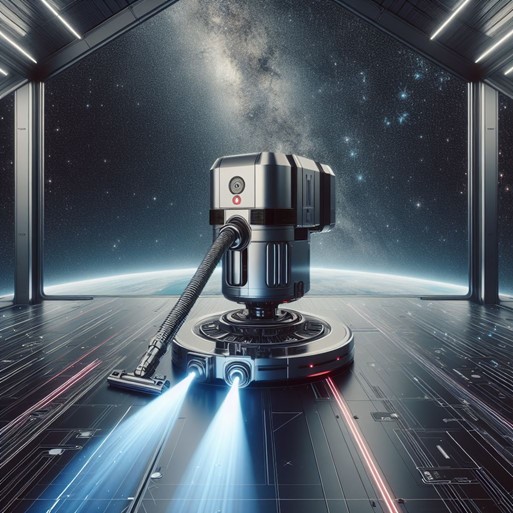
Future Space Projects and Environmentally Friendly Approaches
As technology advances, adopting eco-friendly approaches in space projects becomes increasingly important. Efforts such as electric-propelled rockets, more efficient and environmentally friendly methods for space mining, and recycling systems on space stations shape the future of sustainability in space.
In conclusion, the principles of "sustainability and environmental protection" should not be overlooked in space exploration. Efforts in these areas will ensure the continuation of space discoveries and offer a more livable future for our planet.
Space, on the other hand, is an expression of humanity's endless curiosity and exploration. Every day, various space vehicles and observation systems are used to gather information about new planets, stars, and galaxies. However, space exploration is a large-scale and complex process, and human skills can sometimes be insufficient in areas such as data analysis, navigation, mission planning, and risk management required by this process. It is precisely at this point that artificial intelligence comes into play and forms a powerful alliance to push the boundaries of human exploration in space.

The importance of artificial intelligence in space exploration is significant, just like in other aspects of life. Artificial intelligence, which makes our lives easier in every field, also provides great support while exploring space.

Below, we share some of the methods by which artificial intelligence facilitates space exploration.
Space Observation and Data Analysis
Large datasets from satellites and space vehicles are often too massive to be processed manually by humans. This is where artificial intelligence comes in; deep learning algorithms, data analytics, and image processing techniques can quickly analyze this data. For instance, artificial intelligence algorithms applied to images taken by observation satellites can identify important information such as environmental changes, land use changes, or potential risks. This enables the collection of crucial data on various topics like monitoring natural disasters, improving agricultural productivity, or tracking water resources.
Space Missions and Automation
Artificial intelligence is used to manage and automate space missions. With its ability to make complex decisions and adapt to environmental conditions, space vehicles can operate more efficiently. For example, artificial intelligence-supported algorithms can be used to direct research on the surface of Mars. Researchers can benefit from AI-based systems to analyze data collected by space vehicles and determine new objectives.
Space Debris and Threat Management
The increasing amount of space debris poses a serious threat to future space missions. Artificial intelligence can be used to monitor space debris, predict collision risks, and take preventive measures. Furthermore, AI-based systems can be developed to clean up and manage space debris. These systems are crucial for ensuring the safety of spacecraft operating in space and ensuring the success of future space missions.
Navigation and Rotation Planning
Navigation and rotation planning for space vehicles is highly complex. Artificial intelligence can assist space vehicles in determining the most optimal routes, quickly adapting to environmental variables, and minimizing navigation errors. This ensures safer and more efficient travel for space vehicles.
Exploration and Predicting the Unknown
There are many unexplored areas and mysteries in space. Artificial intelligence can analyze space data to make new discoveries, predict unknown phenomena, and unravel mysteries in the depths of the universe. This allows humanity to gain more understanding and make new discoveries in the cosmos.
The collaboration between artificial intelligence and space exploration in these areas can help humanity advance its presence in space more effectively, safely, and with a spirit of discovery. In the future, the widespread development of AI-supported space vehicles and systems is expected to continue, making it possible to push the boundaries of space exploration and unlock the mysteries of the universe.
Astronaut Assistants
Artificial intelligence has become a focal point for scientists developing intelligent assistants to support astronauts in real space missions. These AI-supported assistants aim to enhance the safety and efficiency of space missions by addressing various challenges that astronauts may encounter. For instance, they can detect hazardous situations such as increased carbon dioxide levels in spacecraft and provide astronauts with alerts. Additionally, by identifying sensor malfunctions in advance, they can expedite the problem-solving process for the crew.
For example, the AI assistant named Cimon was sent to the International Space Station in December 2019 and successfully used by astronauts. Such assistants have the capabilities to analyze data, perform various tasks, and provide guidance to astronauts in emergency situations. Furthermore, AI-powered robots like Robonaut developed by NASA can collaborate with humans to undertake risky tasks and play a crucial role in ensuring astronauts' safety.
These advancements in artificial intelligence not only contribute to safer space exploration and research but also enhance the efficiency of processes involved in these endeavors.
[description] => [keywords] => Artificial Intelligence, Space Exploration, planets, stars, and galaxies, exploring space, Space Observation, space vehicles, deep learning algorithms, data analytics, image processing techniques, Space Missions, artificial intelligence-supported algorithms, surface of Mars, AI-based systems, space debris, future space missions, AI-based systems, depths of the universe, AI-supported assistants, AI assistant named Cimon, International Space Station, AI-powered robots, Robonaut developed by NASA [extra] => [{"key":"","value":""}] [created_date] => 2024-04-03 16:20:00 [updated_date] => 2024-04-04 11:03:15 [lang] => en [active] => 1 [search] => 1 [facebook_piksel] => ) [4] => stdClass Object ( [id] => 936 [parent] => 23 [order] => 6 [lang_id] => 7455e36a19daead76eaf99fb48ddd24e [title] => Türkiye's Place in Space: Past, Present, and Future [subtitle] => 03.12.2024 [header_img] => 0 [list_img] => upload/media/alper-gezeravci1.png [summary] => The sky has always been a source of mystery throughout human history. The Anatolian lands have hosted many civilizations under the stars, observing this mystery for thousands of years. [content] =>Today, Türkiye is marking a new era in this mysterious journey into space. While various scientists in its geography have been engaged in space-related studies for a long time, Türkiye’s true encounter with space dates back to the 20th century.
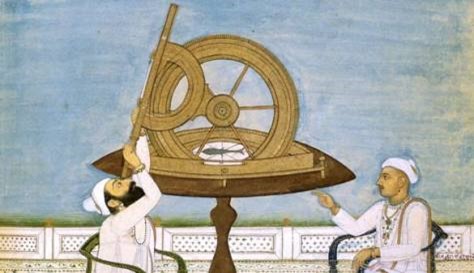
As a country, Türkiye made significant strides in various space studies in the 20th century, taking its initial steps into space with the establishment of the Istanbul University Astronomy Department in 1933. Acquired in 1936 by the directive of Atatürk, Türkiye's first telescope is still actively serving in the Astronomy Department of Istanbul University today. This historical telescope continues its mission of observing solar surface explosions, making valuable contributions to scientific research. Subsequently, our country, having signed different international agreements related to space, continued its space activities for a long time, primarily with "communication satellites."
The launch of these satellites began in 1994 with TÜRKSAT 1B, and over the past 30 years, Türkiye has continued satellite and communication studies with projects such as TÜRKSAT, BİLSAT, RASAT, GÖKTÜRK, and İMECE. With these efforts, Türkiye became one of the 30 countries with communication satellites in space.
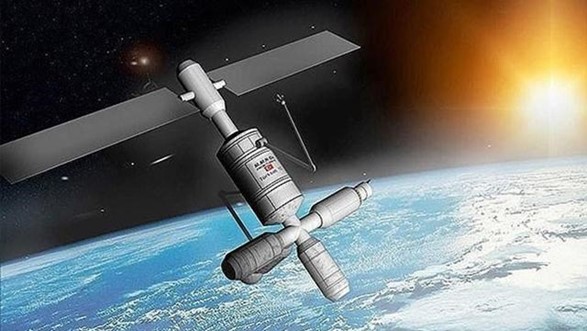
The Establishment of the Turkish Space Agency and the First Manned Mission
Türkiye's space program gained significant momentum with the establishment of the Turkish Space Agency (TUA) in 2018. Through TUA, our country, creating its own space program, is determined to carve out a solid position for itself internationally. Achievements in observation satellites, communication satellites, and space research indicate Türkiye's aspiration not only to observe but also to actively influence space affairs.
This exciting space journey reached its peak in 2024 when the first Turkish astronaut, Alper Gezeravcı, made history by being sent into space. Gezeravcı successfully conducted 13 scientific experiments during his mission to the space station, attracting global attention.
Alper Gezeravcı's space mission significantly strengthened Türkiye's role in space. Such international collaborations and space missions conducted by the Turkish Space Agency (TUA) are elevating the country's standards in the scientific and technological fields. Gezeravcı's journey to space served as a great source of inspiration for the younger generations, enabling them to envision a future where Türkiye not only observes space but actively participates. Determining Türkiye's place in space is now not just a dream but a real success story.
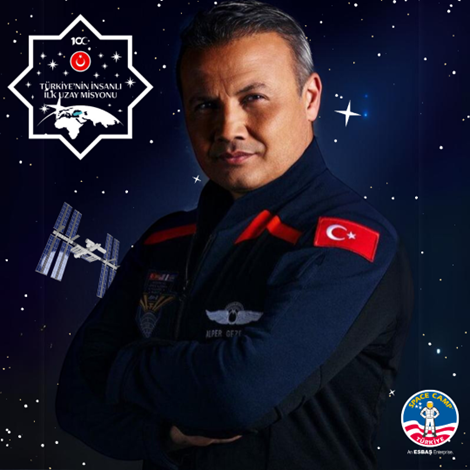
Near-Future Goals
Looking ahead, one of Türkiye's major goals in space is a journey to the Moon. This is envisioned as a significant milestone in Türkiye's space research that will not only mark an important achievement in the field but also strengthen its international position. As Space Camp Türkiye our aim is to influence young generations to join to our never-ending space journey.
Indigenous Production and Nationalism in Satellite Manufacturing
Türkiye has ambitious goals in satellite technologies as well. The aim is to centralize satellite production under a single roof and develop it using local resources, with the goal of reducing external dependency and ensuring technological independence. This includes the development of satellite systems usable in both military and civilian sectors.
Space Station and Independent Access
Plans to establish a space station are also on Türkiye's agenda to achieve independent access to space. This critical step aims to enable Türkiye to launch its space vehicles from its own territory, facilitating a more active role in space research.
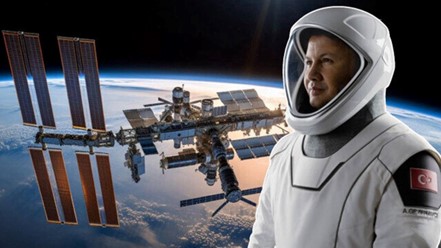
Space Technologies and Industrial Ecosystem
Türkiye aims to develop the space technologies and industrial ecosystem, increase space awareness in society, and train a workforce in this field. The establishment of the Space Technologies Development Zone is planned to encourage research and innovation in this domain, fostering the commercialization of space technologies. Consequently, under the leadership of the Turkish Space Agency (TUA), Türkiye's space studies and research have gained momentum. Goals such as a journey to the Moon, local satellite production, regional positioning systems, space station, and scientific missions indicate that Türkiye is confidently progressing towards becoming a significant player in space.
Efforts in the upcoming period to achieve these goals will further elevate Türkiye's visibility in international space research.
[description] => Türkiye's Place in Space: Past, Present, and Future. The sky has always been a source of mystery throughout human history. The Anatolian lands have hosted many civilizations under the stars, observing this mystery for thousands of years. [keywords] => Turkish Space Agency (TUA), the first Turkish astronaut, Alper Gezeravcı, Türkiye's visibility in international space research, Space Technologies Development Zone, [extra] => [{"key":"","value":""}] [created_date] => 2024-03-14 16:46:22 [updated_date] => 2024-03-29 16:56:51 [lang] => en [active] => 1 [search] => 1 [facebook_piksel] => ) )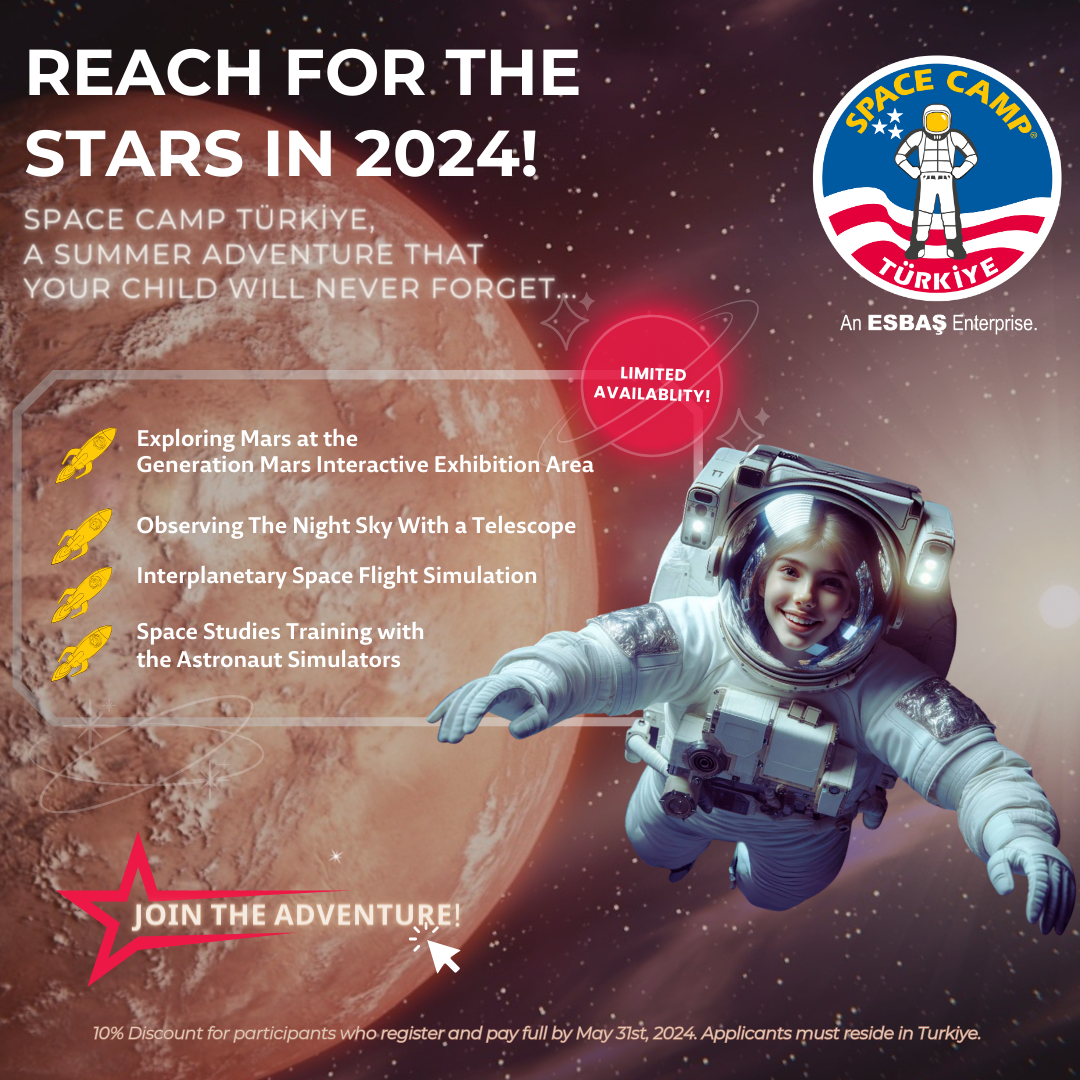
2025 International Summer Camp for Teens and Kids!
2025 International Summer Camps for Teens and Kids Now Open With Limited Spots! Join the Adventure at Unique Space and Science Education Center.
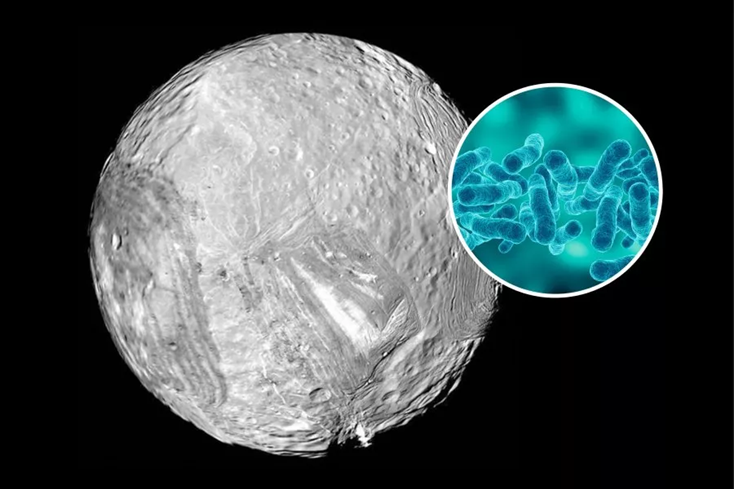
Recent Developments in the Search for Extraterrestrial Life
The question of whether we are alone in the vast universe is one of humanity’s greatest curiosities. For years, scientists have been searching for an answer using telescopes, spacecraft, and radio signals. Recent developments suggest that extraterrestrial life might be closer than we previously thought. Let’s take a look at some of the most exciting discoveries in recent times.
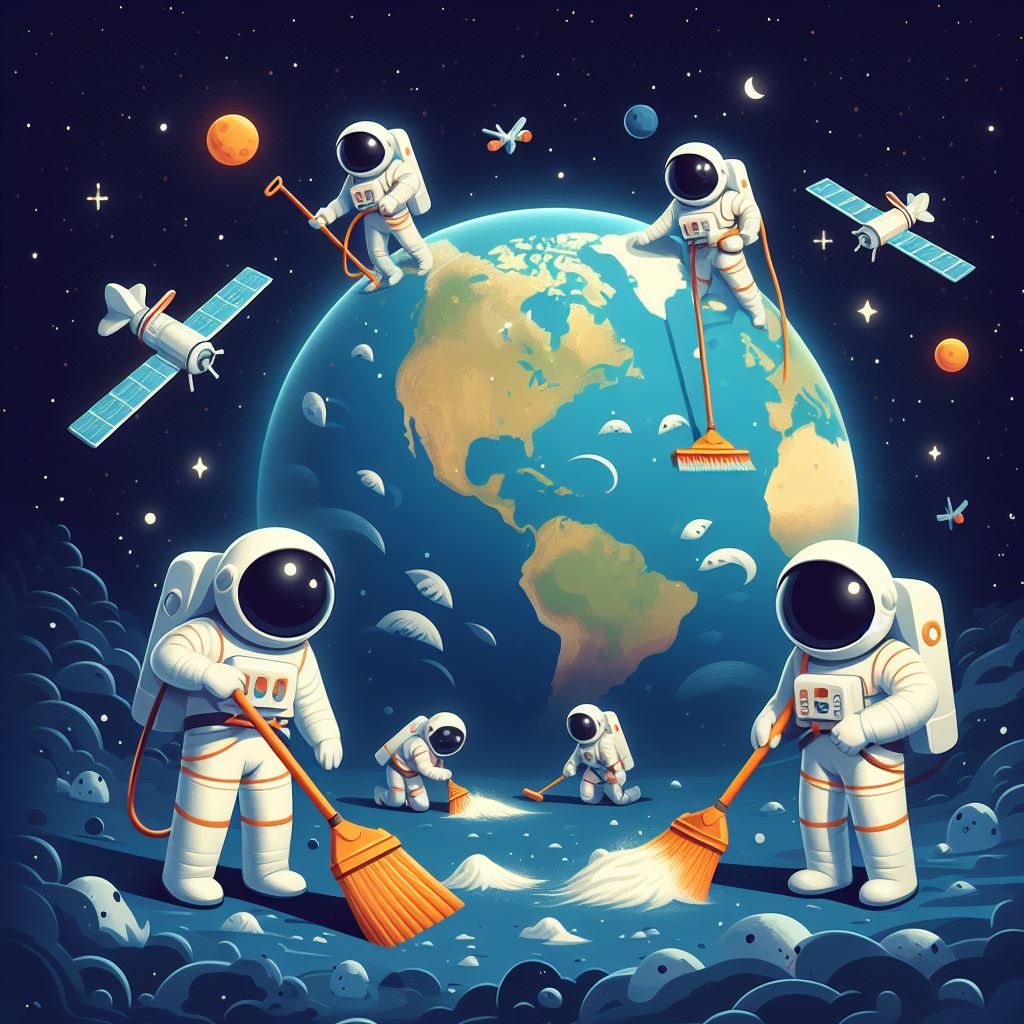
Sustainability and Environmental Protection in Space
Space exploration is one of humanity's most exciting and significant endeavors. It allows us to discover new horizons, enhance our knowledge of the universe, and advance our technology. However, space exploration must also be sustainable for our planet Earth and future generations.

Artificial Intelligence and Space Exploration
Artificial intelligence, a rapidly advancing technology in recent years, has had profound impacts on various sectors. When it comes to its effects on human life, artificial intelligence offers many positive contributions. Automation systems and smart devices generated through artificial intelligence make people's daily lives easier and more comfortable.
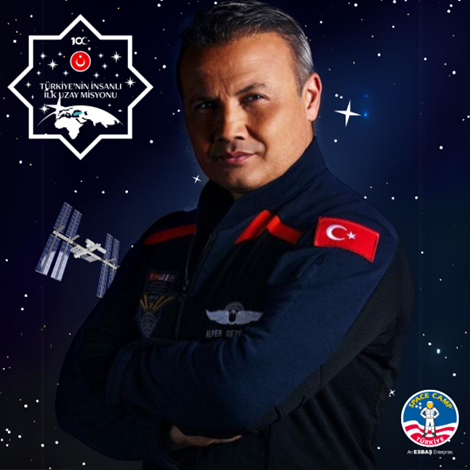
Türkiye's Place in Space: Past, Present, and Future
The sky has always been a source of mystery throughout human history. The Anatolian lands have hosted many civilizations under the stars, observing this mystery for thousands of years.
